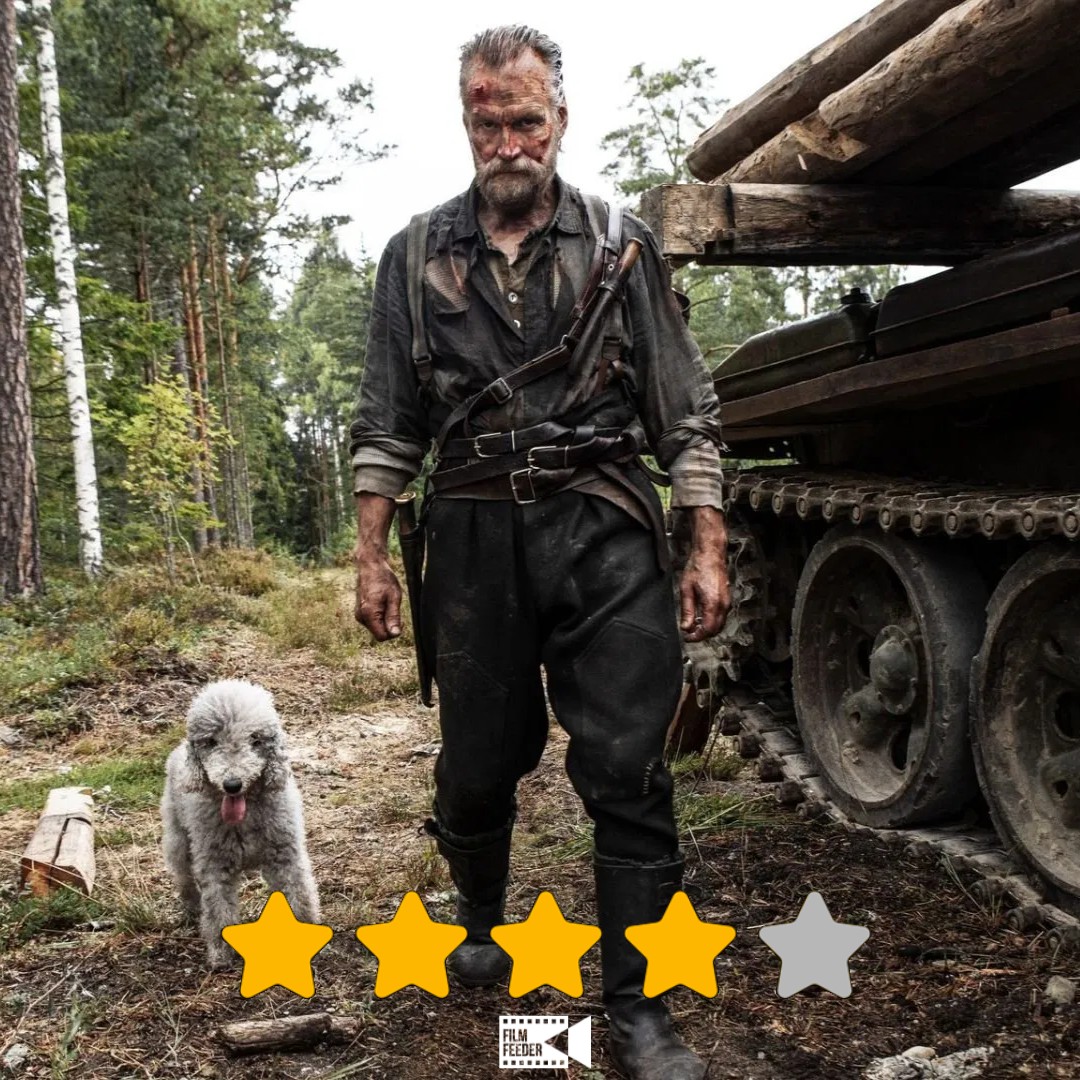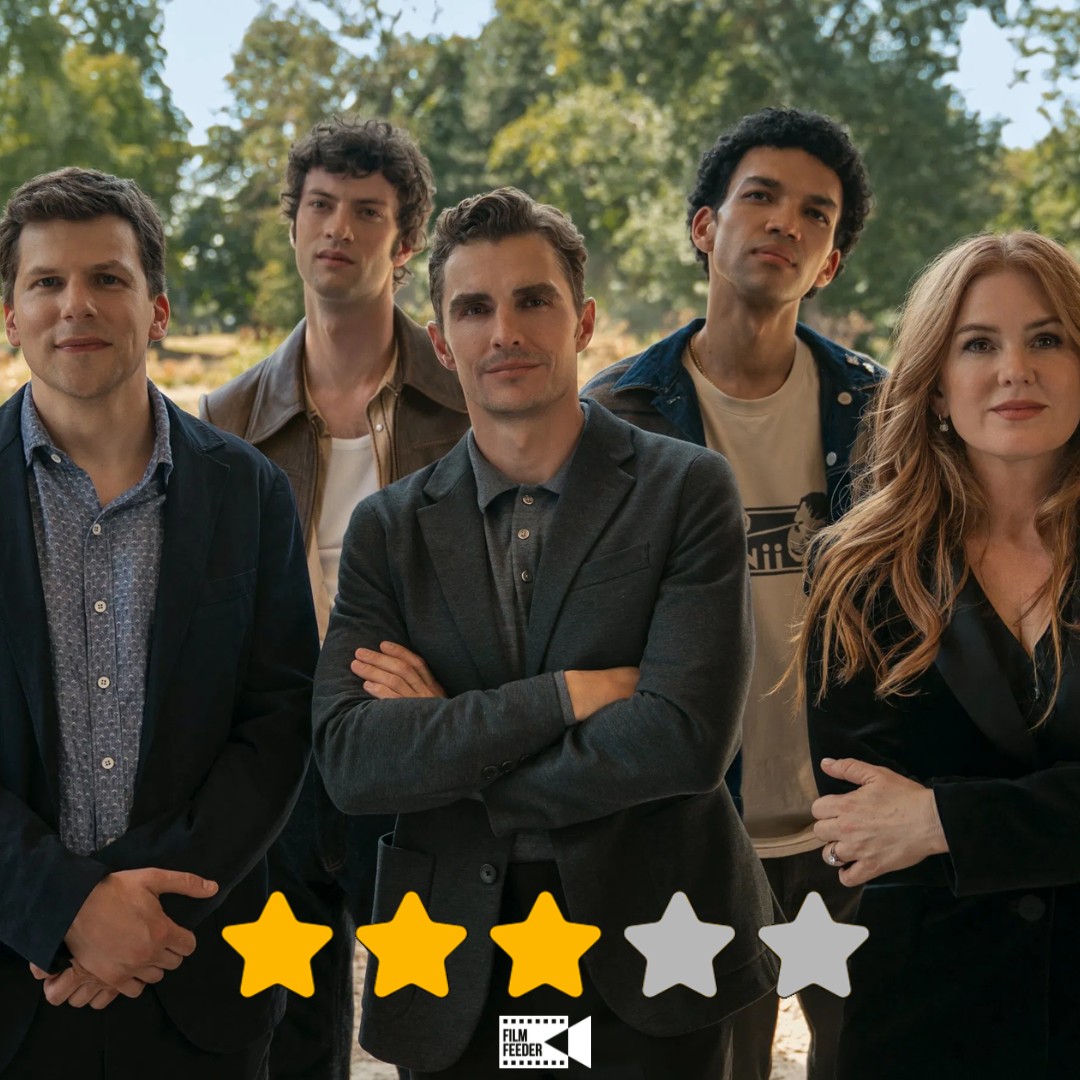
September 5 (dir. Tim Fehlbaum)
Certificate: 15
Running Time: 95 mins
UK Distributor: Paramount Pictures
UK Release Date: 6 February 2025
WHO’S IN SEPTEMBER 5?
Peter Sarsgaard, John Magaro, Ben Chaplin, Leonie Benesch, Zinedine Soualem, Georgina Rich, Corey Johnson, Marcus Rutherford, Daniel Adeosun, Benjamin Walker, Rony Herman
WHO’S BEHIND THE CAMERA?
Tim Fehlbaum (director, writer), Mortiz Binder and Alex David (writers), Mark Nolting, John Ira Palmer, Sean Penn, Philipp Trauer, John Wildermuth and Thomas Wöbke (producers), Lorenz Dangel (composer), Markus Förderer (cinematographer), Hansjörg Weißbrich (editor)
WHAT’S IT ABOUT?
During the 1972 Munich Olympics, an American broadcasting team covers a devastating event…
WHAT ARE MY THOUGHTS ON SEPTEMBER 5?
We can certainly watch and enjoy newsroom satires like Network, Anchorman and Nightcrawler, but it isn’t as though the outrageous stuff that gets reported on in those films – or indeed the manner in which they’re presented – is too far removed from how ruthlessly exploitative broadcast media can be.
Take the events of September 5, 1972, as an example: the day when 11 Israeli athletes competing at the Munich Olympics were taken hostage and promptly massacred by a masked group of Palestinian militants known as Black September. Beyond being one of the darkest days in the history of international sports, the situation also marked the first time a major terrorist event was captured live on television, with millions around the world watching in horror as the day inched closer to tragedy. As morbid as it may sound, September 5 was a broadcasting milestone that, in a sense, paved the way for our current obsession with sensationalist news stories that care little about the actual humanity at its centre, so long as it gets them exclusive coverage and terrific ratings.
Director and co-writer Tim Fehlbaum chooses this angle to approach the situation in his gripping thriller September 5, which details the intricate methods used to capture some of the most chilling imagery in modern history, while also raising numerous thought-provoking points about the media’s role in conveying the truth of our society.
The film takes place almost entirely within the small studio space allotted to ABC’s sports division during the Munich games, where things are moving at a rapid pace as channel president Roone Arledge (Peter Sarsgaard) oversees the broadcast of numerous sporting events. The relatively uneventful games, though, are given a sudden wake-up call – all too literally, in some cases – when reports of gunshots coming from the Olympic Village stir those on the studio’s night shift, including control room head Geoffrey Mason (John Magaro) and German translator Marianne (Leonie Benesch), who eventually learn of the hostage situation among the Israeli athletes. Sensing an opportunity for exclusive coverage, Mason spearheads an organised team, including reporter Peter Jennings (Benjamin Walker), to broadcast the ongoing situation live, coming into conflict with rival news outlets, the local authorities, and eventually their own morals as the day reaches its ultimately tragic conclusion.
Those expecting September 5 to get into the heated Israeli-Palestinian conflict, the very catalyst of the Munich massacre, will not find that here. Not only is this not the kind of film to get into such a debate, even as the doomed Israeli hostages are understandably given the most sympathy, but there simply isn’t time for one, as Fehlbaum instils a fast pace that busily zips across several areas throughout this small studio, from the control room to the editing bay, as the producers and moderators scramble to keep up with the unfolding events. The film’s focus really is just on this news team, and the methods they use to either acquire footage – which involves disguising a worker as an athlete to gain access to the restricted Olympic Village – or get around having to share broadcast slots with other networks, all while conveying the news as they receive it, whether it’s from Jennings’ field reporting or the police scanners they’ve hacked into or even unconfirmed reports from local German coverage.
Unlike previous filmic depictions of the Munich massacre, including the Oscar-winning documentary One Day in September and Steven Spielberg’s Munich, Fehlbaum’s film exclusively explores the media’s contribution to the events of September 5, raising numerous concerns about whether or not the relentless coverage actually did more harm than good for the situation. At one point, the crew realises that broadcast footage of police attempting a covert rescue might also be viewed by the militants, while at another point, news commentators liken the white-suited Black September leader to a rock star persona, in a suggestion that the normalisation of murderous regimes and figureheads in media could create an enticing but ultimately destructive perspective in the minds of certain viewers.
The film also shows the intoxicating power of being placed in charge of such a poignant news narrative, for as the day goes on you see how the likes of John Magaro’s Geoffrey Mason become so consumed by their monumental task that much of their morality begins to be sidelined in favour of creating a pure live spectacle. Whether it’s instructing some of his crew members to bring sound equipment with them to the scene in case more gunfire is heard, or hastily bringing an escaped and clearly traumatised hostage into the studio for an interview, there are a handful of questionable decisions made for the sake of television, but the humanity poured into these characters by the ensemble cast (particularly Magaro) allows you to still understand where they’re coming from, even if you don’t agree with them.
Though at times the confined atmosphere can limit its overall emotional reach, September 5 is both a compelling new vision of the real-life tragedy and a stark depiction of what the media is capable of when placed in overwhelming situations. The answers are far from easy, but then again nothing about that day in 1972 was, so it’s as worthwhile and honest as all news media should be.
SO, TO SUM UP…
September 5 is a compelling depiction of the 1972 Munich massacre that shifts the focus to the news team covering the tragic event, in the process forming a smartly executed and thoughtful depiction of the media’s questionable role in the development of the situation.














0 Comments